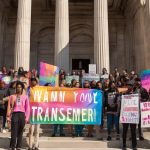Under the Radar: Conversion Practices Continue Despite Federal Prohibition


Table of Contents
ToggleDespite the legal restrictions put in place, reports suggest that gender conversion practices persist, raising concerns about the efficacy of the bans.
The lack of charges against those providing these services post-ban has allowed such practices to continue under the radar, prompting questions about the enforcement mechanisms in place.
The implications of these ongoing practices on vulnerable communities are significant, warranting a closer examination of the complexities surrounding this issue.
The persistence of conversion therapies despite federal bans in Canada, the U.S., and the U.K. underscores the ongoing challenges in eradicating these harmful practices. While bans have been implemented, the enforcement and prosecution of those offering conversion therapies have been lacking, allowing these practices to continue clandestinely.
In the United States, where prevalence is higher compared to Canada, the deep-rooted issues of homophobia and transphobia contribute to the persistence of these harmful treatments. Health-care professional bodies like the American Psychological Association have vehemently opposed conversion therapies due to their detrimental effects on individuals' mental health and well-being.
Despite the condemnation and efforts to curb these practices, some practitioners resort to using coded language or operate underground to avoid detection, perpetuating the harm inflicted on vulnerable LGBTQ individuals. The prevalence of conversion therapies highlights the urgent need for continued vigilance and comprehensive strategies to eradicate these damaging practices entirely.
Amidst the ongoing prevalence of conversion therapy practices, LGBTQ+ individuals face heightened risks to their mental health, including increased rates of depression, anxiety, and suicidal ideation. Despite the federal ban on conversion therapy, LGBTQ youth continue to be subjected to these harmful practices, impacting their mental well-being to a considerable extent. The discrimination based on sexual orientation and gender identity perpetuated by conversion therapists leads to profound psychological distress among vulnerable individuals.
These damaging practices not only violate the rights of LGBTQ+ individuals but also contradict the ethical standards upheld by mental health practitioners. The persistence of conversion therapy, often under disguised titles, poses a severe threat to the mental health and overall welfare of transgender people and those questioning their sexual orientation. The emotional toll of attempting to change one's inherent identity through such methods can have long-lasting consequences, emphasizing the urgent need for stricter enforcement of the bans on conversion therapy to safeguard the mental health of LGBTQ+ individuals.
Conversion practitioners persist in evading legal consequences by employing coded language to circumvent the federal ban on gender conversion practices, posing substantial challenges to enforcement efforts. Despite the bans in Canada, the U.S., and the U.K., individuals and organizations offering conversion practices have managed to escape charges. The use of coded language allows them to continue these harmful practices without facing repercussions. Additionally, the condemnation of conversion practices by health-care professional bodies like the American Psychological Association hasn't translated into effective enforcement actions.
Enforcement agencies struggle to detect and prosecute conversion practitioners due to their use of covert language.
The higher prevalence of conversion practices in the U.S. compared to Canada underscores the challenges in enforcing bans effectively.
Enhancing policies and increasing efforts to protect LGBTQ people are vital to address the loopholes that allow these practices to persist post-ban.
Indigenous and racial minority groups often face a higher prevalence of conversion practices compared to white groups in various regions. This discrepancy can be attributed to regional variances in acceptance of diverse gender norms, as well as differences in state laws regarding the legality of conversion therapy. While some states have implemented conversion therapy bans to protect individuals from discrimination based on sexual orientation and gender identity, these laws aren't uniformly enforced across the country. This results in pockets of communities where practitioners still offer conversion therapy, especially targeting transgender clients.
Health-care professional bodies like the American Psychiatric Association have strongly condemned conversion practices due to their harmful effects on individuals' mental and emotional well-being. Despite advocacy efforts to raise awareness about the dangers of conversion therapy, the prevalence of these practices remains significant, particularly in regions where there's less support for LGBTQ rights. It's essential to continue advocating for thorough protections against conversion practices to guarantee the safety and well-being of all individuals, regardless of their sexual orientation or gender identity.
Advocacy groups spearhead efforts to combat gender conversion practices, emphasizing the importance of protecting vulnerable populations. The Trevor Project and similar organizations actively work to raise awareness and support survivors of harmful gender conversion therapy. Their advocacy has been instrumental in the implementation of gender conversion therapy bans in 22 states and D.C., marking significant progress in the fight against these detrimental practices.
These bans serve as vital legal safeguards to prevent further harm and exploitation of individuals seeking support and affirmation. Advocates tirelessly push for complete bans nationwide to guarantee the protection of all individuals from the damaging effects of gender conversion practices.
Gender conversion practices often employ various methods to enforce conformity to desired gender norms. These can include hormone therapy, psychological counseling, and even surgical procedures.
It's essential to be aware of the harmful impact these practices can have on individuals. Despite a federal ban, some still engage in these damaging techniques, perpetuating outdated beliefs about gender identity.
It's important to promote acceptance and support for individuals in their journey of self-discovery.
Gender conversion practices specifically target transgender individuals within the LGBTQ+ community by imposing harmful and coercive methods to alter their gender identity. These practices prey on vulnerable individuals seeking acceptance and validation, often using emotional manipulation and misinformation to exploit their insecurities.
Despite the federal ban on gender conversion therapies, some providers have found loopholes to continue offering these harmful practices. By exploiting vague language or operating under the guise of other services, these providers sidestep the regulations.
This situation underscores the need for clearer and more robust legislation to effectively prevent the perpetuation of gender conversion practices. It's like trying to plug a leaky boat with a band-aid; the problem persists despite superficial attempts at a solution.
Cultural and religious beliefs can greatly influence the persistence of gender conversion practices in certain regions. These beliefs often shape societal norms and attitudes towards gender identity, reinforcing the idea that individuals should conform to binary gender roles.
In such environments, individuals may face pressure to undergo conversion therapies to align with these traditional beliefs, perpetuating harmful practices despite legal restrictions.
Understanding these cultural and religious influences is important in addressing and combatting the continuation of gender conversion practices.
Advocacy groups are employing various strategies to combat gender conversion practices. They conduct awareness campaigns, provide support to victims, and collaborate with policymakers to enforce laws.
In the fight against gender conversion practices, advocates continue to face uphill battles. Despite federal bans, the persistence of these harmful therapies is a bitter pill to swallow.
The road ahead may be long and winding, but with unyielding determination, we can endeavor for a future where all individuals are accepted and respected for who they are.
Let's stand together and break the chains of discrimination, one step at a time.
 Featured PostsFebruary 20, 2026Trans Adult Healthcare Under Siege as Project 2025 Architect Seeks Gender‑Affirming Care Ban
Featured PostsFebruary 20, 2026Trans Adult Healthcare Under Siege as Project 2025 Architect Seeks Gender‑Affirming Care Ban Featured PostsFebruary 20, 2026Tennessee Lawmakers Approve Controversial Bill Permitting Discrimination Against Same-Sex Marriages
Featured PostsFebruary 20, 2026Tennessee Lawmakers Approve Controversial Bill Permitting Discrimination Against Same-Sex Marriages Featured PostsFebruary 19, 2026Pride, Policy, and Punishment: LGBTQ+ Federal Employees Fight Back in Court
Featured PostsFebruary 19, 2026Pride, Policy, and Punishment: LGBTQ+ Federal Employees Fight Back in Court News and AdvocacyFebruary 18, 2026Kansas Republicans Push Through Historic Trans Bathroom Bounty, Overriding Governor’s Veto
News and AdvocacyFebruary 18, 2026Kansas Republicans Push Through Historic Trans Bathroom Bounty, Overriding Governor’s Veto